Many Leica enthusiasts are familiar with the pre-production models of the Leica, the Nullserie, which were made in 1923, two years prior to marketing of the first Leica, the Leica 1 ore Model A, which was officially introduced at the Leipzig Spring Fair in 1925. Many photographs do exist of these two models and the differences are clearly visible. But how did these two cameras differ internally?
It was common practice to make detailed drawings of the design of cameras which, of course, included these two models as well. Unfortunately these were never published by the company and thus very few have ever seen them.
Fortunately, the well-known Leica (and Ferrari) historian Ginanni Rogliatti obtained permission from the Ernst Leitz Wetzlar GmbH, as Leica used to be called, to publish a reprinted series of these drawings in 1980. These came in the original size and were limited to a total of 1000. They were numbered and signed individually by Gianni Rogliatti.
I am the lucky owner of set number 11 and am happy to share them on these pages. Unfortunately Sig. Rogliatty signed them with a fountain pen with the result that his signature on the three prints has faded substantially over the years. Only a faint version of his signature is still visible.
The first drawing is dated June 13, 1923 and shows one of the Nullserie designs. Supposedly 30 of these cameras were made, but it is assumed that some of them were nonfunctioning. The actual number of working cameras is believed to be no more than 20 cameras. It is also thought that during the production of these cameras several changes were made. One of these changes is quite visible on photographs which show the camera with an early folding viewfinder which had to be used with the camera about one foot distance from the eye. Later models had a standard viewfinder as did the later Leica 1. The Rogliatti drawing shows the Nullserie camera with the folding finder.
The other two drawings are of the Leica 1 or Model A, with one of them dated May 8, 1924. The other one has no date. In spite of the very obvious outward differences between the Nullserie and the Leica 1, it is surprising to see that internally the differences are rather minor. All the controls for film wind and rewind as well as the shutter speed adjustments are in the same position and are of a very similar design. This is also the case with the focal plane shutter as well as the film wind mechanism.
Leica 1
Leica 1 Top
I have the framed drawings hanging in my office right by my desk. Even after all these years of owning them, I never get tired of looking at them and comparing the inner workings of these cameras which were to change photography as no other camera, before or after, ever did.
I have often wondered where the originals are kept at Leica. David Farkas of Leica Store Miami had a chance to visit the Leica company Archives a while ago. Here is his report:
THE LEICA COMPANY ARCHIVES
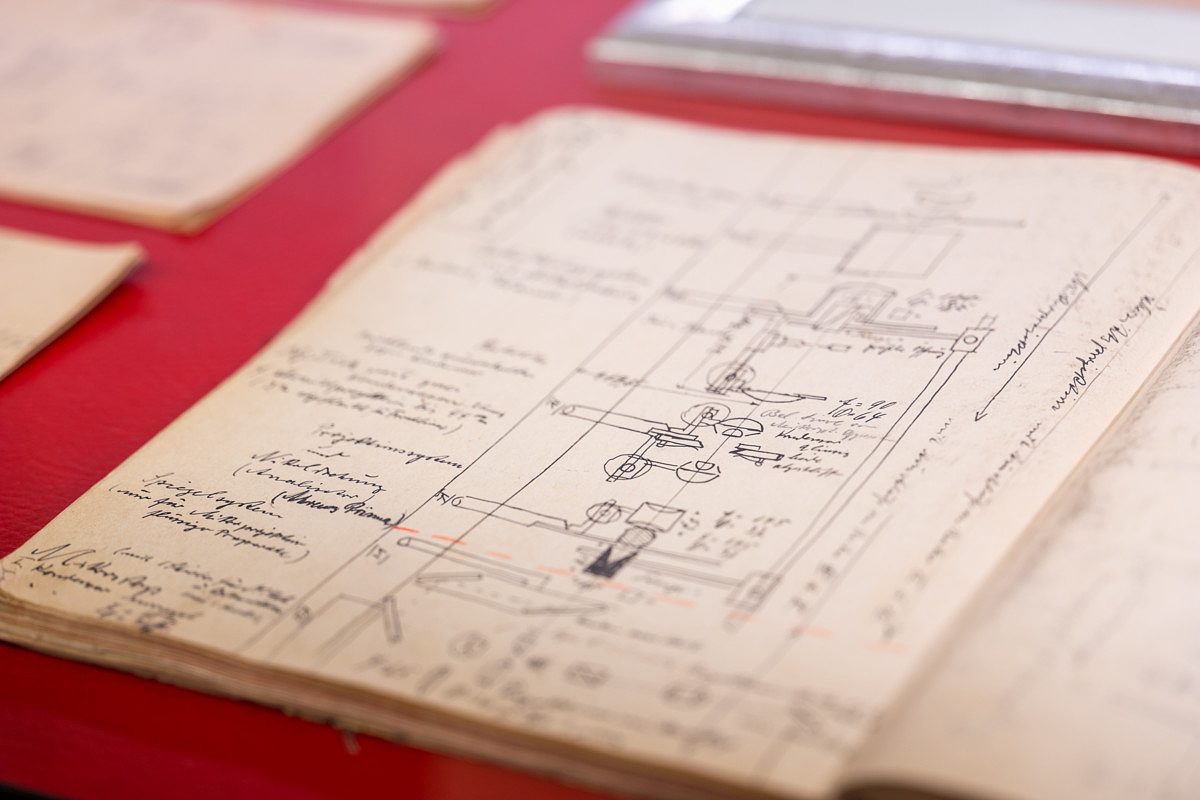
By David Farkas, LeicaStore Miami
Up a back staircase and through a few nondescript double doors, the Leica Company Archives house valuable documents, patents, design sketches, books, photographs, production records, prototype cameras, and more. We took a tour of the Archives, which is located on the second floor of the New Building. Even seeing just the tip of the iceberg, we came away duly impressed.
Records Room
First on our tour was the records room. Here, documents of all sorts were stored in large moveable metal shelving units and more classic file drawers.
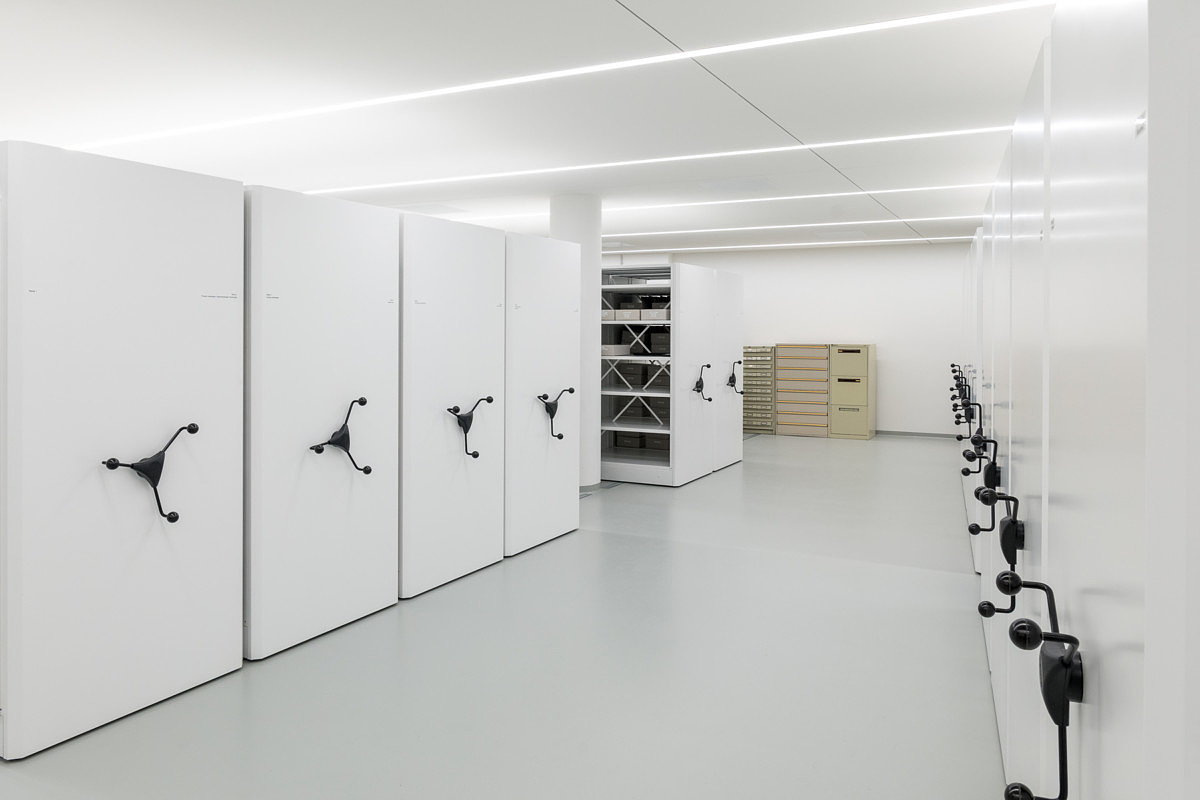
Lots of records, with room to grow
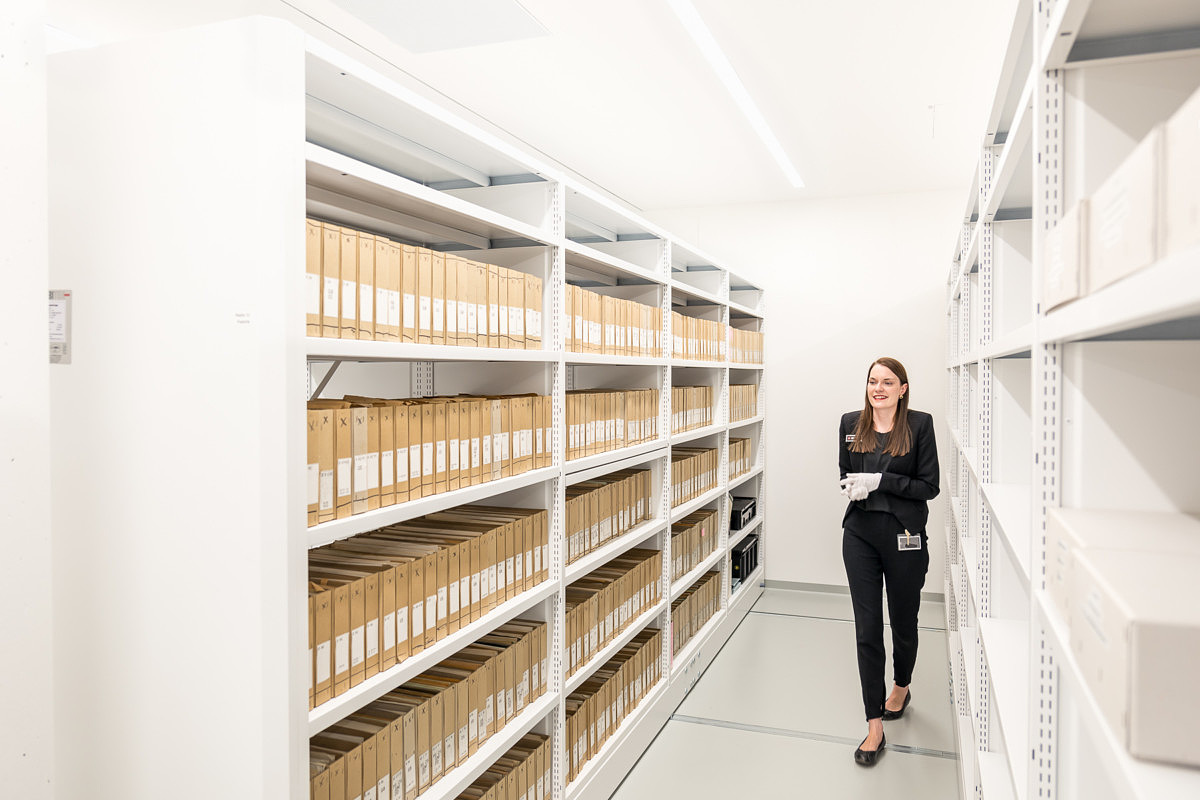
An entire section with Leica patent records
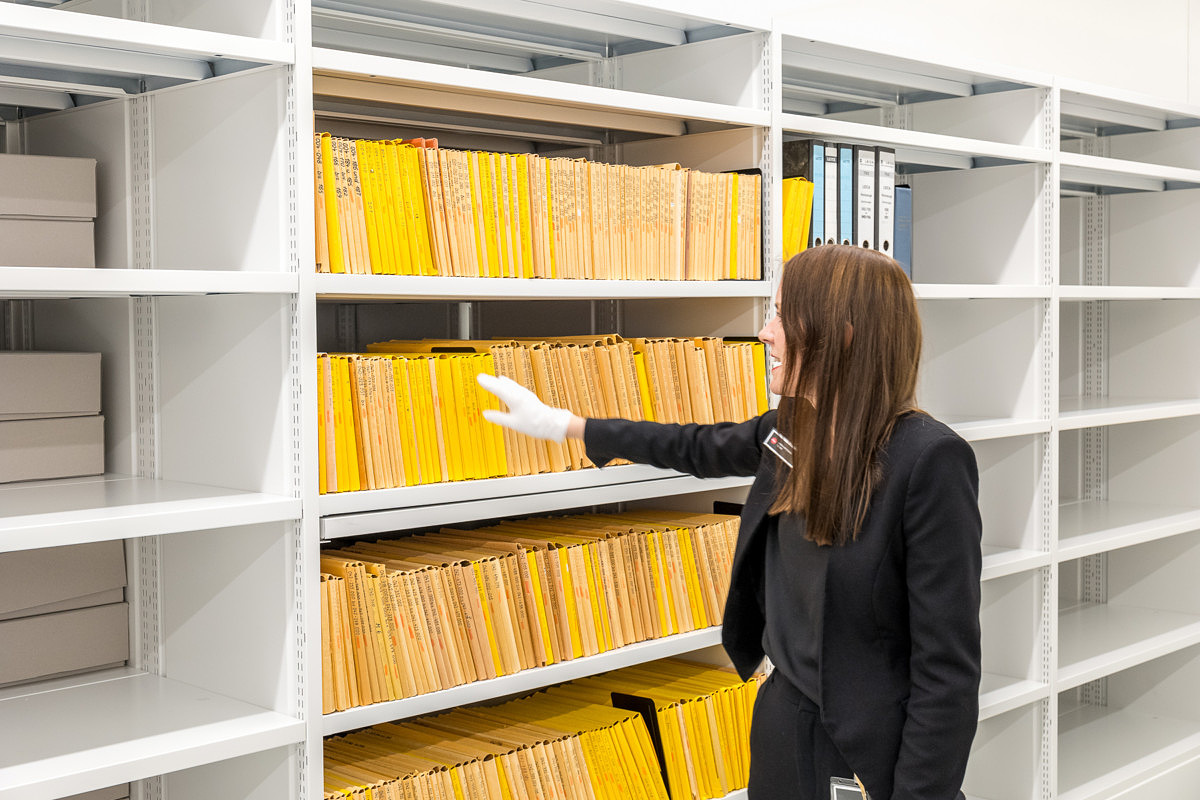
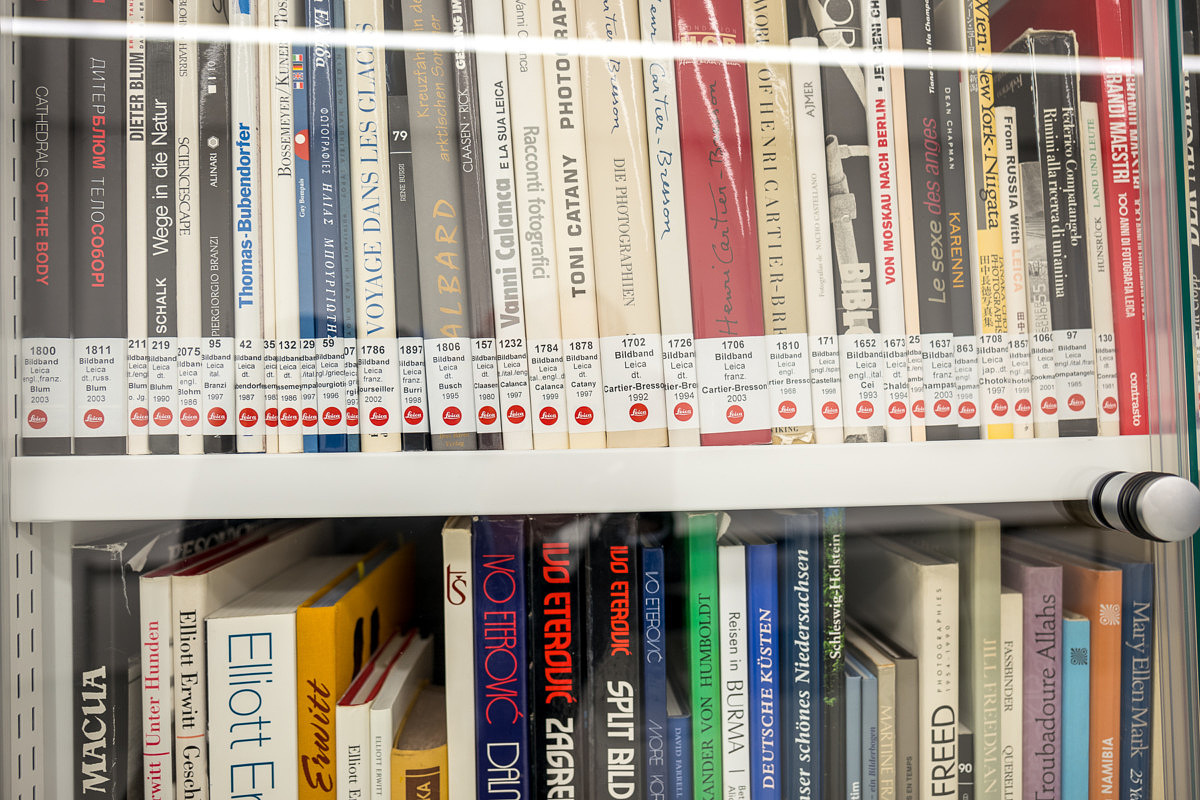
Collection of Leica photography books
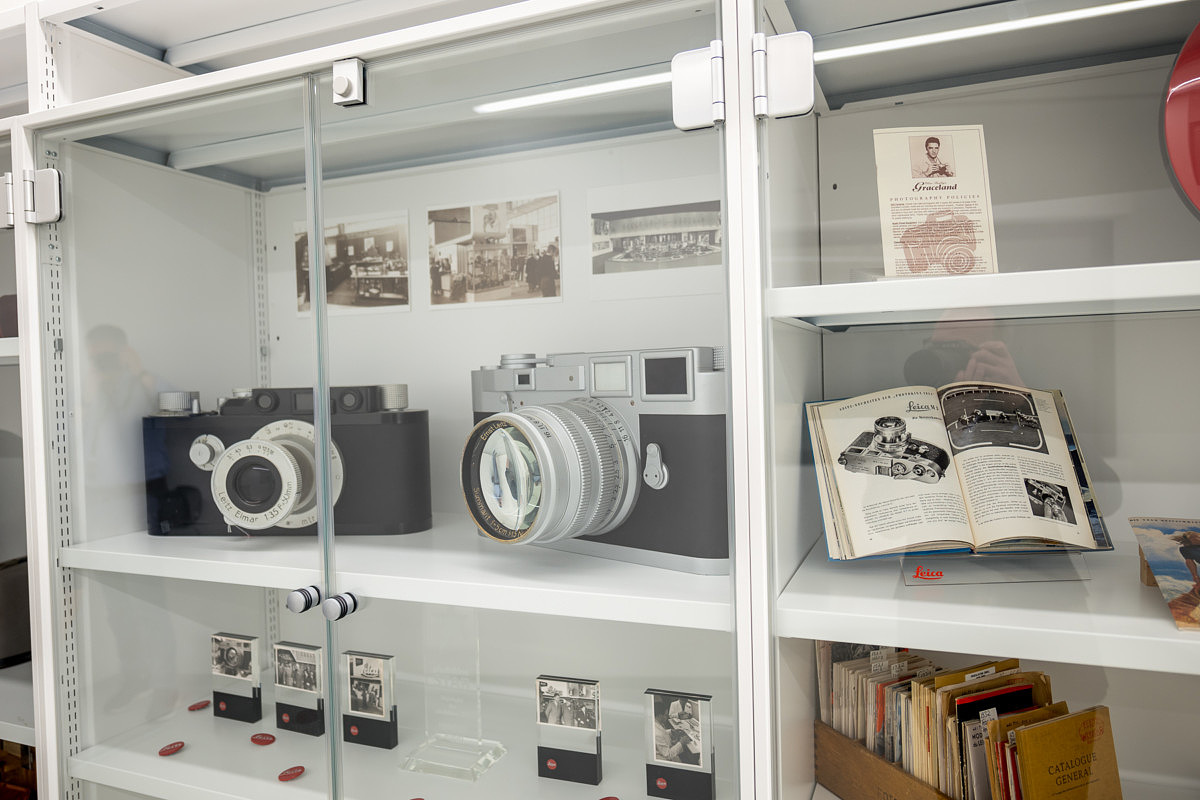
Dealer and trade show display model cameras and promo items
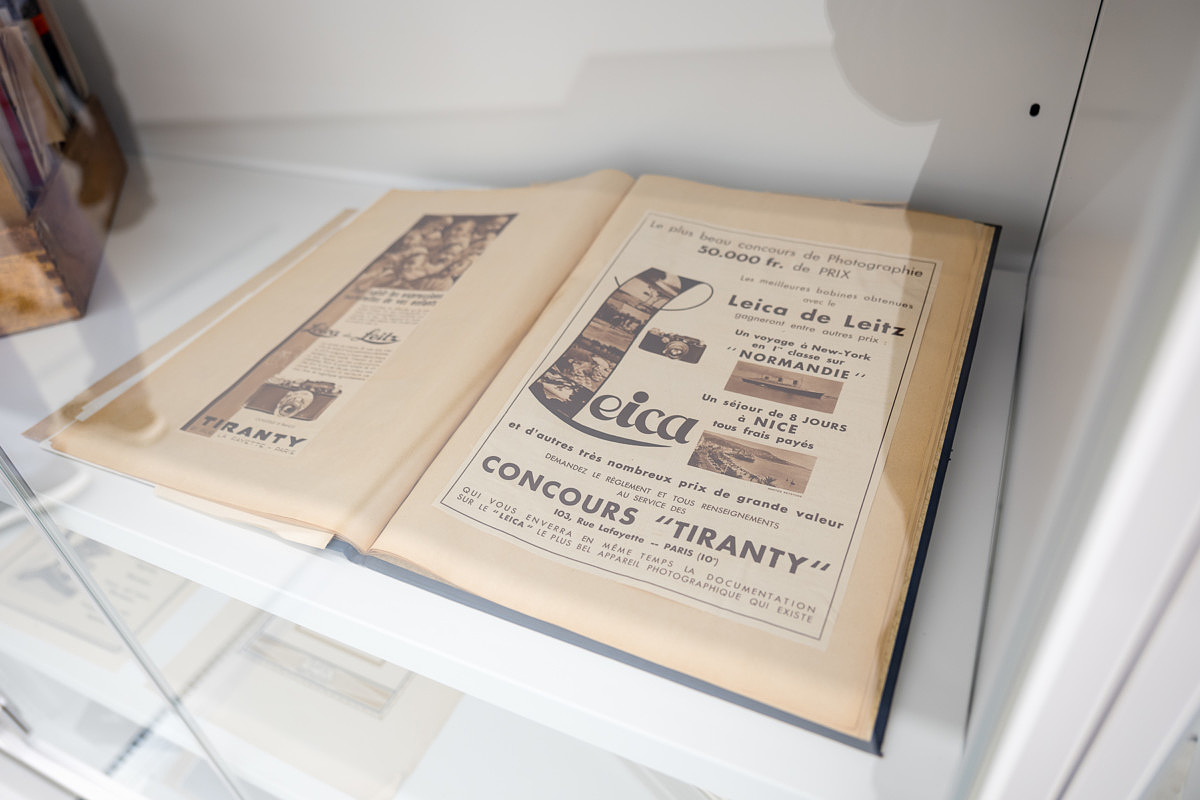
A book of old advertisements
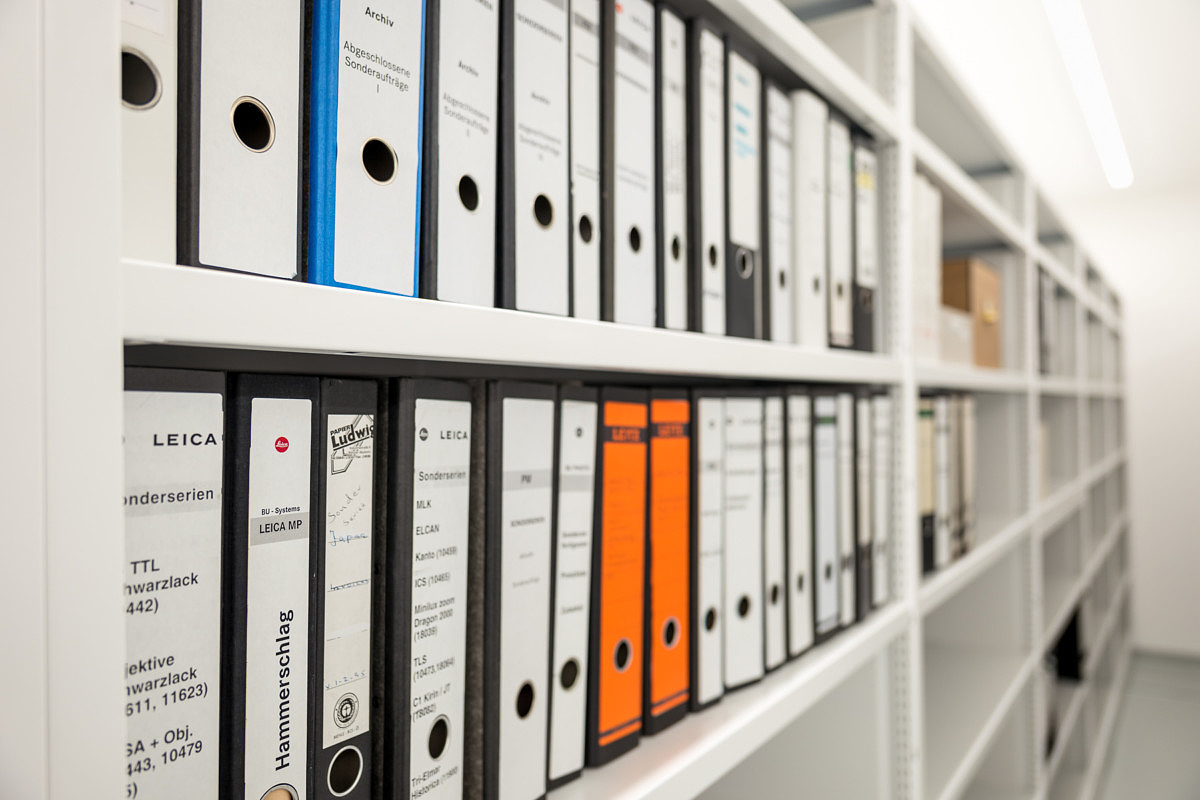
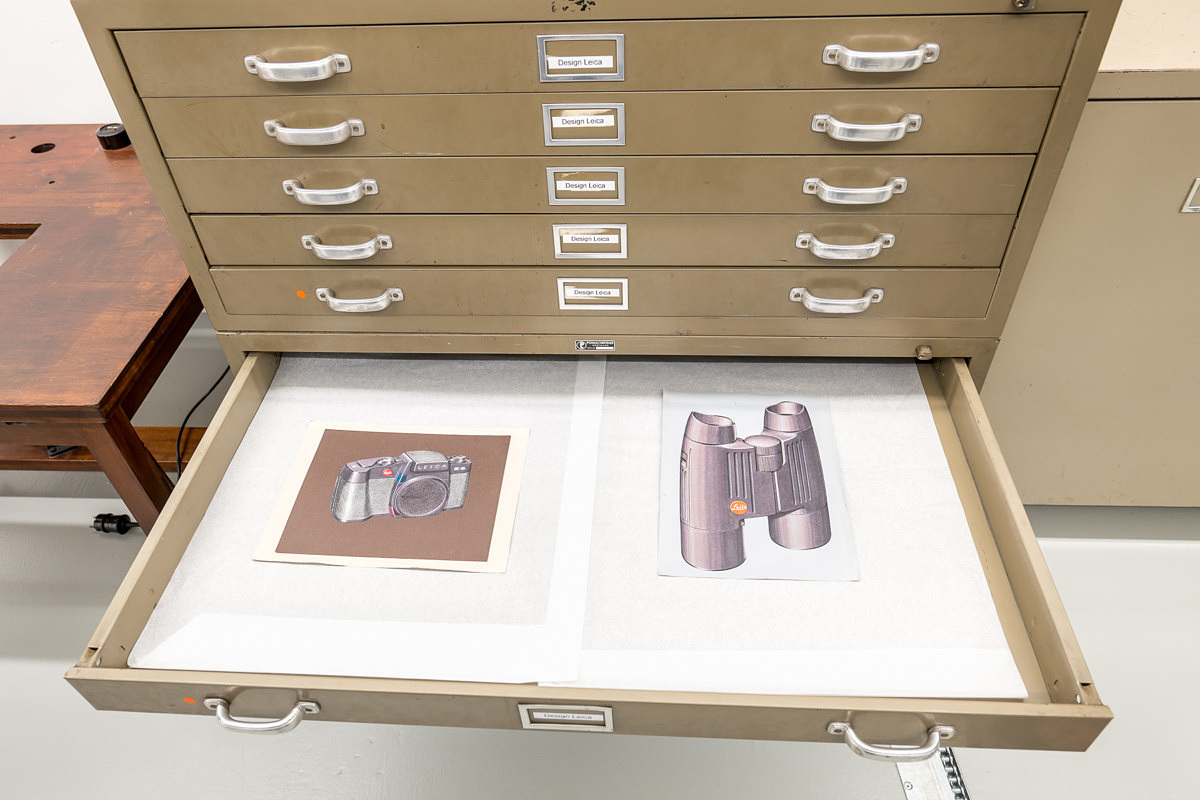
Hand drawn 3D product renderings
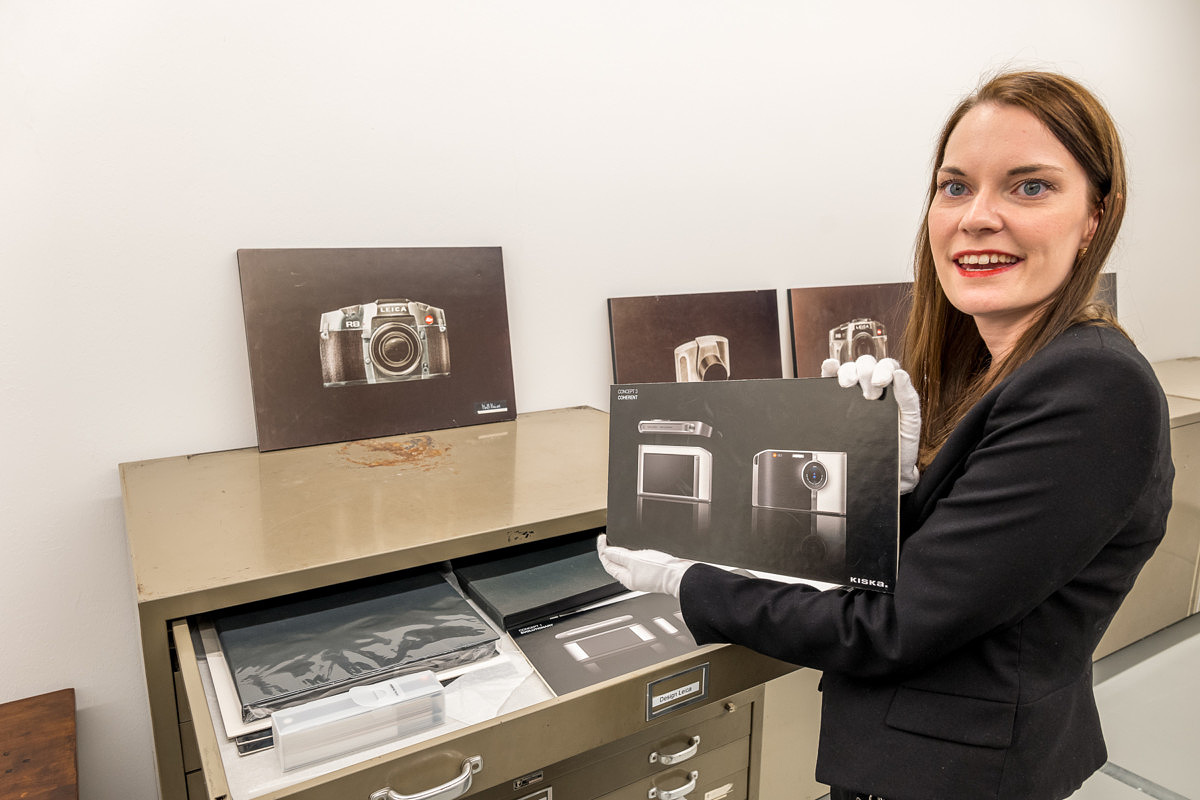
Renderings for concept cameras that were never developed
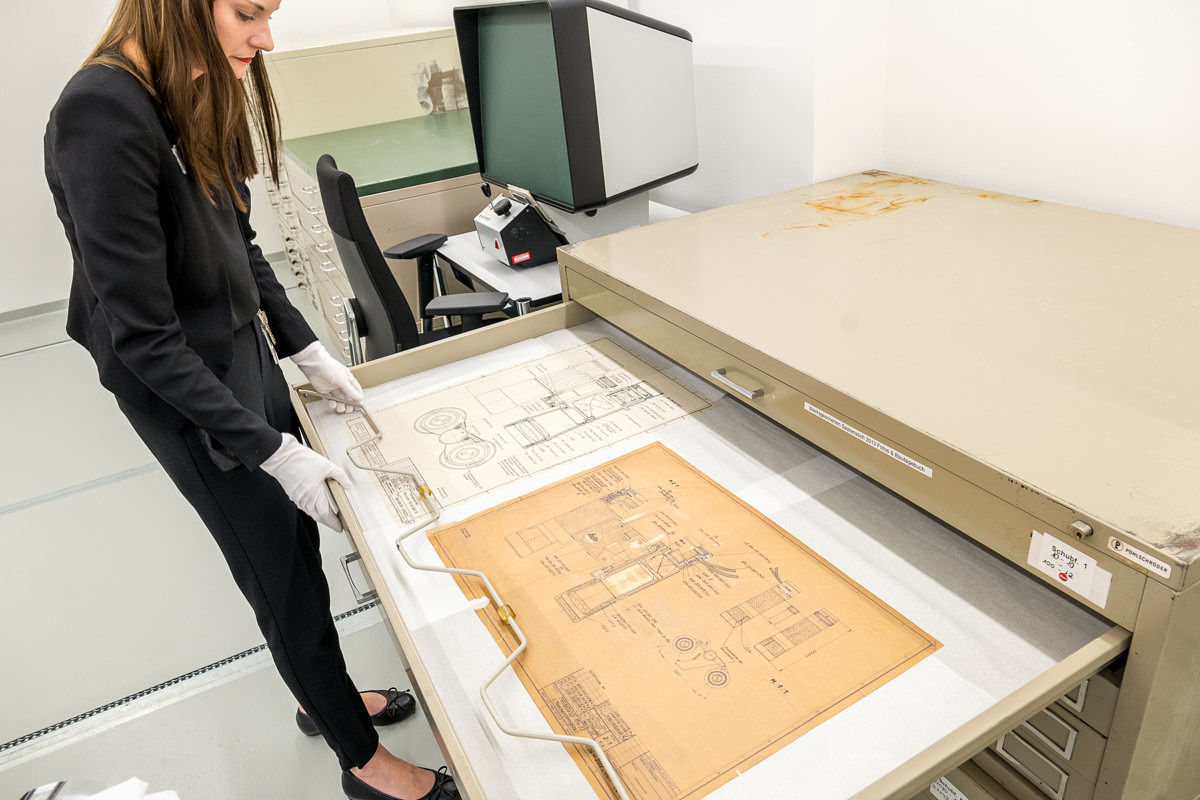
Binocular schematics
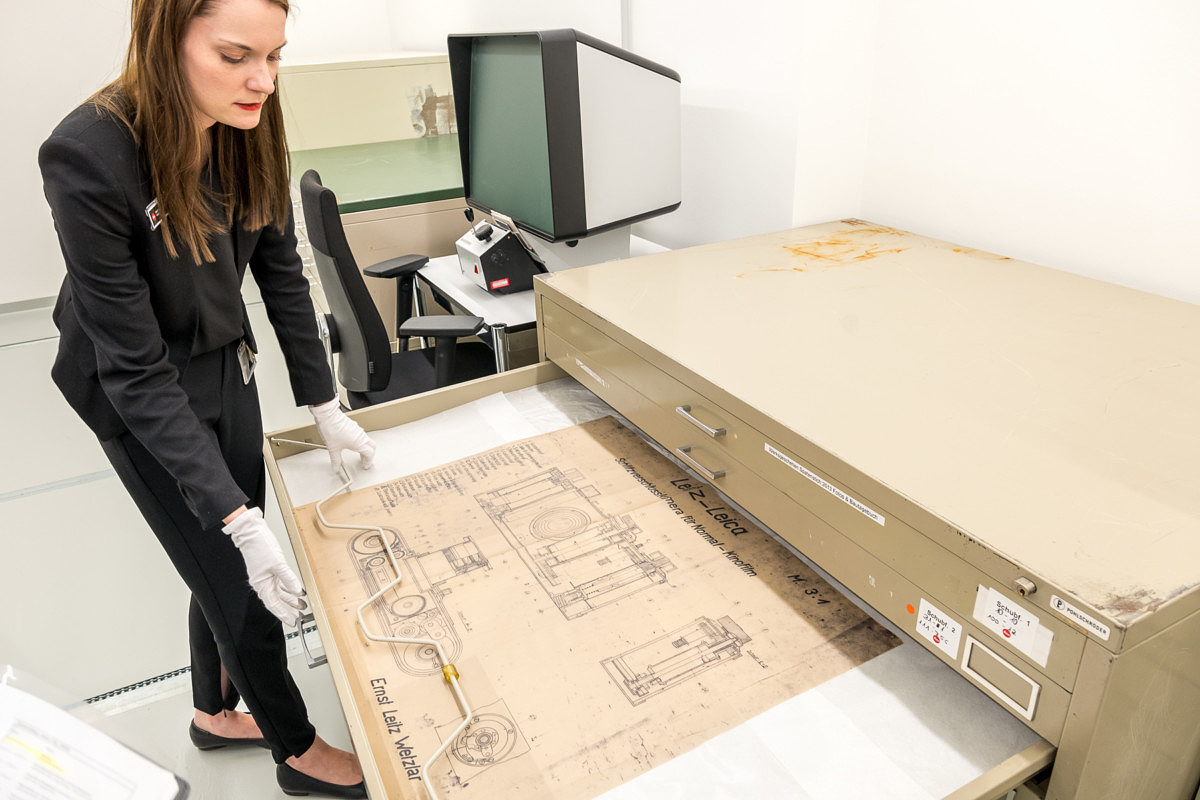
The original schematics from 1929 which Rogliatti used for his limited edition reproductions
Museum
The next stop on the tour was more of mini museum, with several glass display cases. On offer were some significant historical pieces, like a camera and lens from the Hindenburg, the Jony Ive designed camera for (RED) which sold for $1.8 million, Oskar Barnack’s original notes and sketches, contact sheets from the first roll of film ever shot, production records, and some prototyping models for various cameras.
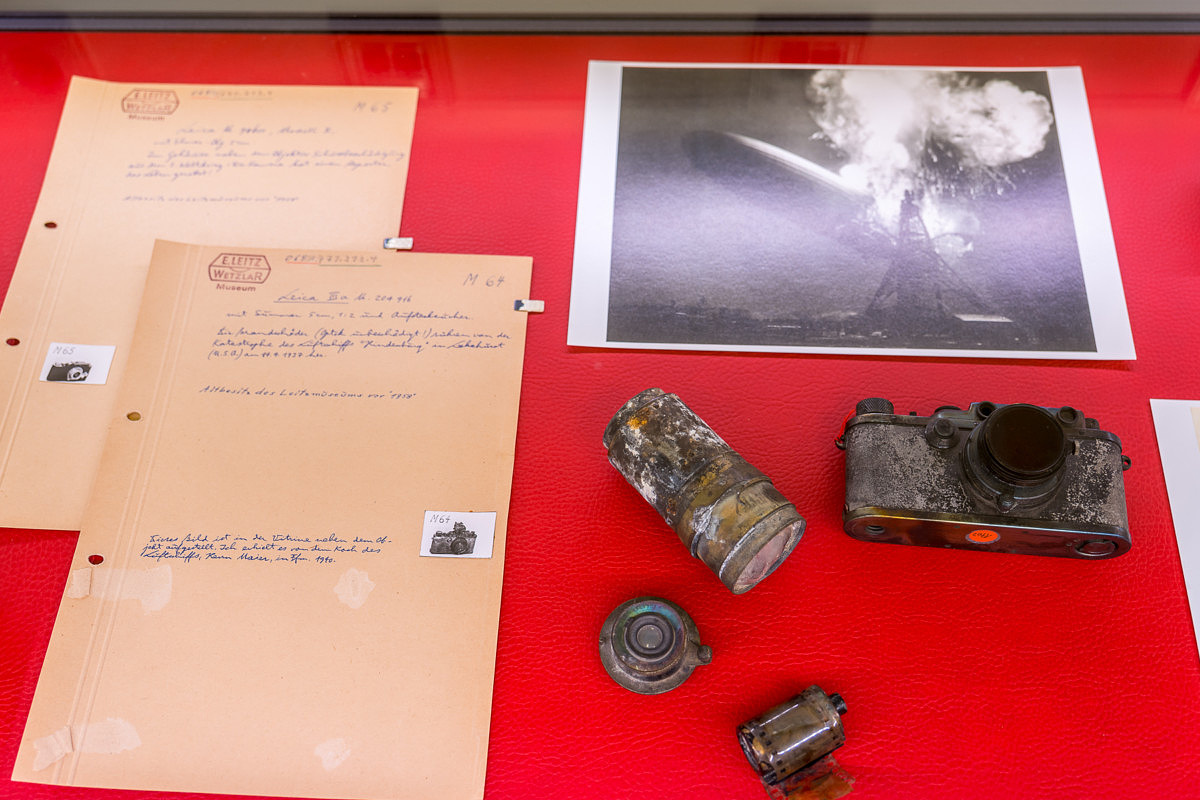
Camera and lenses from Hindenburg
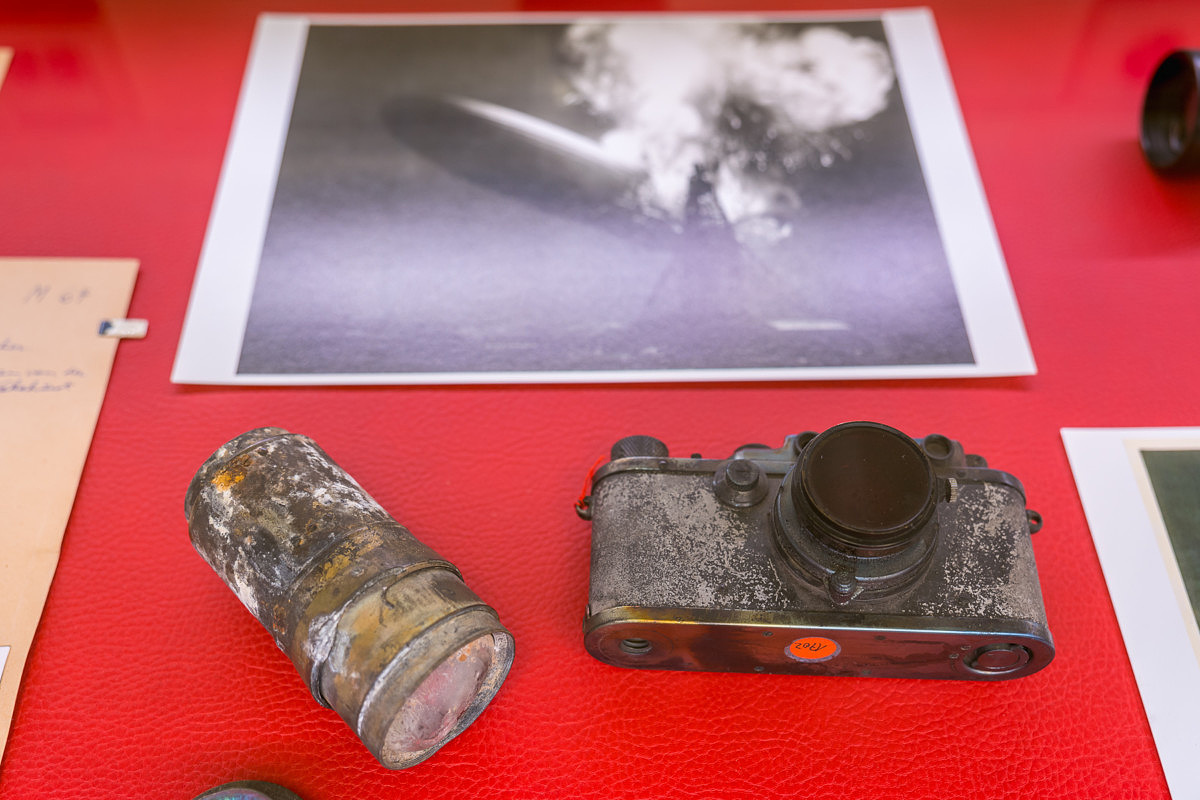
Camera and lenses from Hindenburg
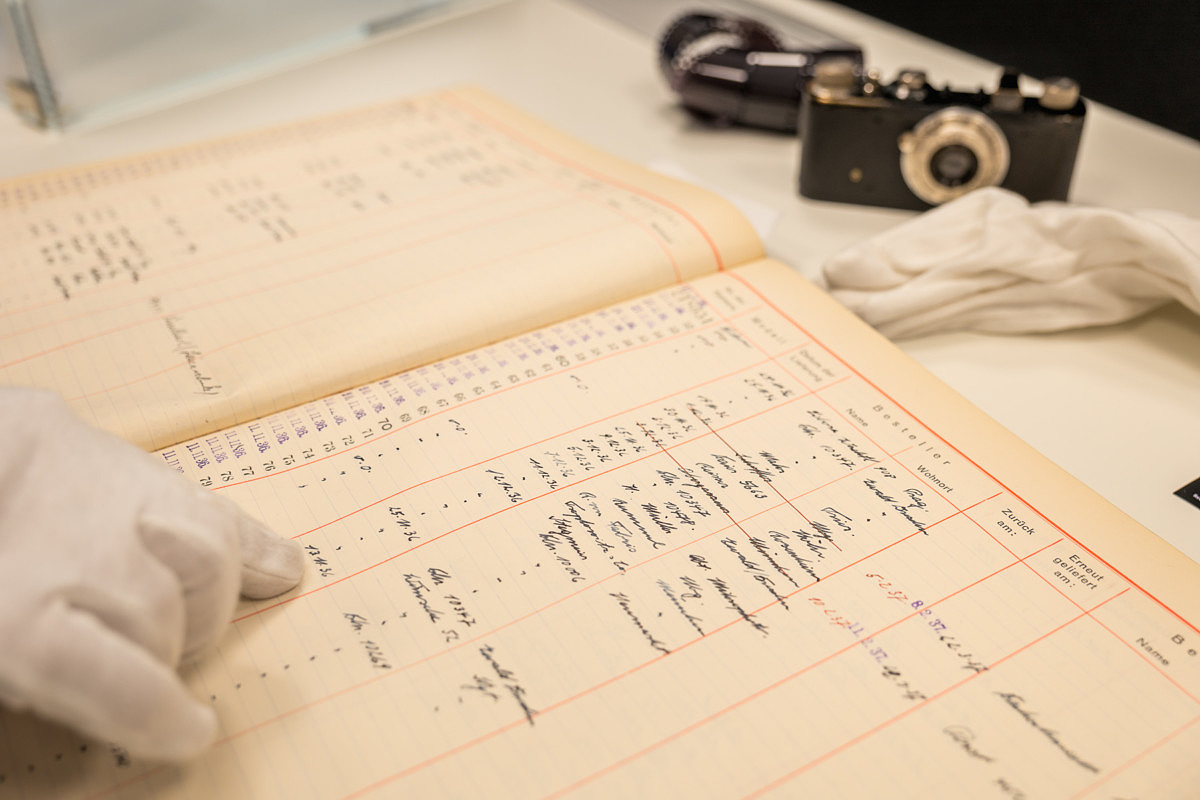
Detailed production records
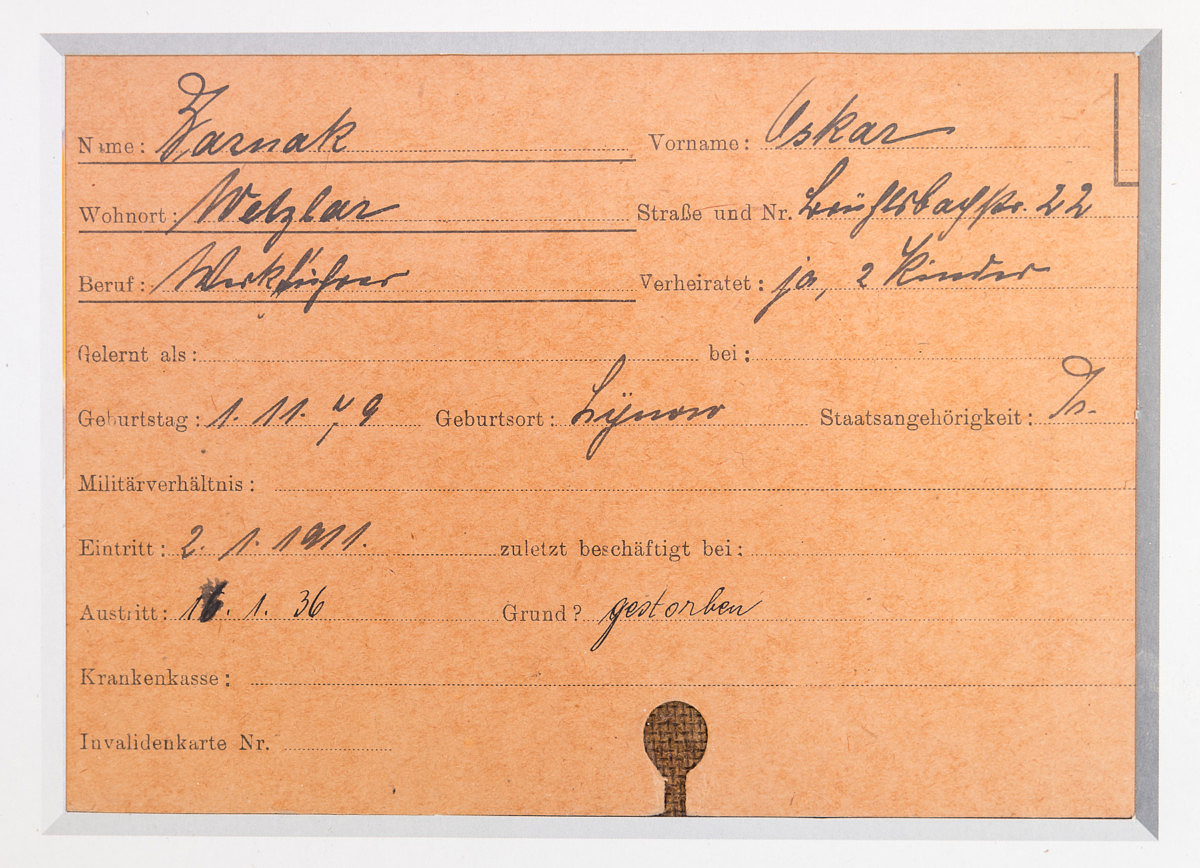
Oskar Barnack’s original employee ID card
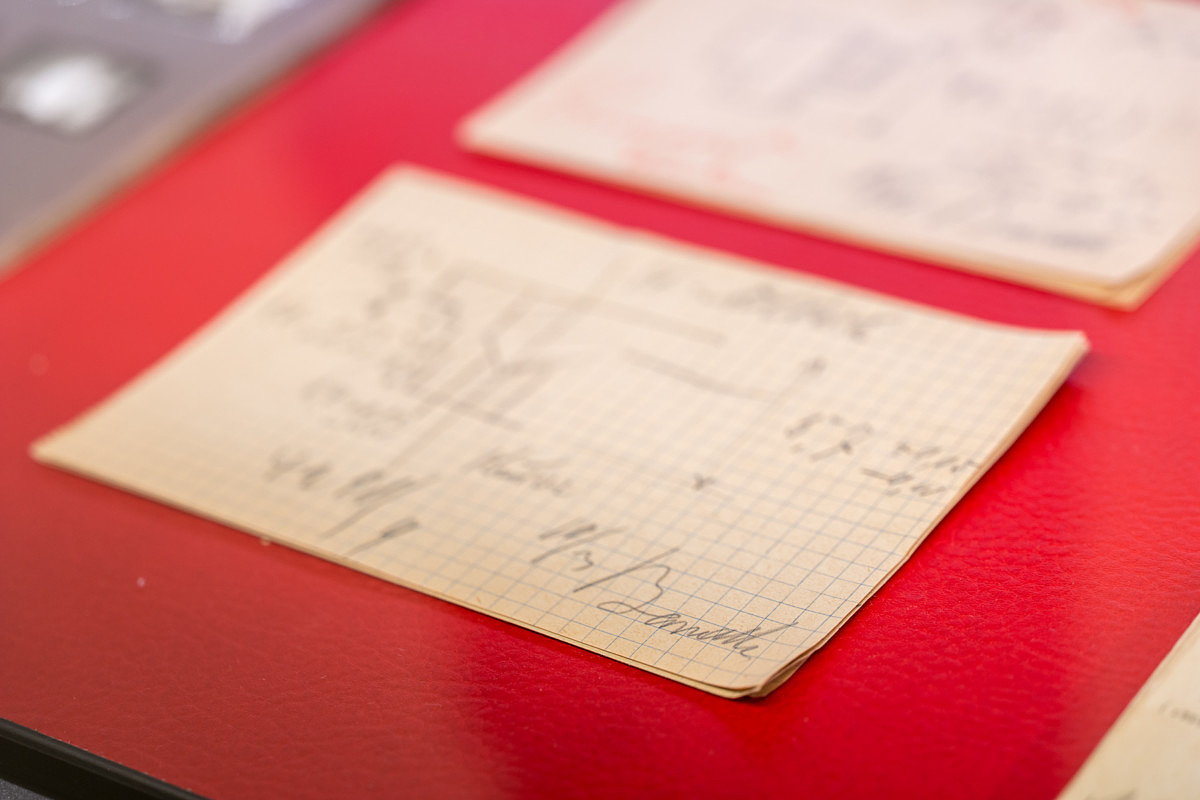
Oskar Barnack design sketches
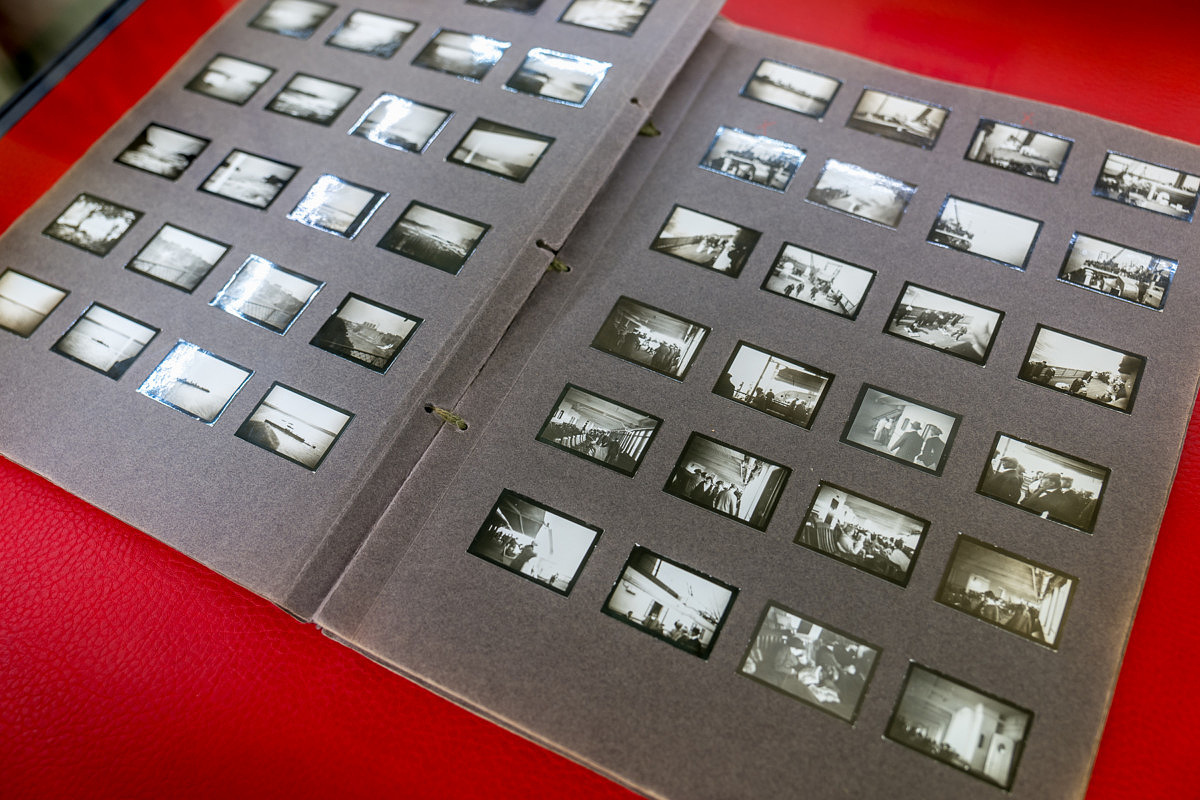
The first ever roll of film shot with a Leica camera, by Oskar Barnack
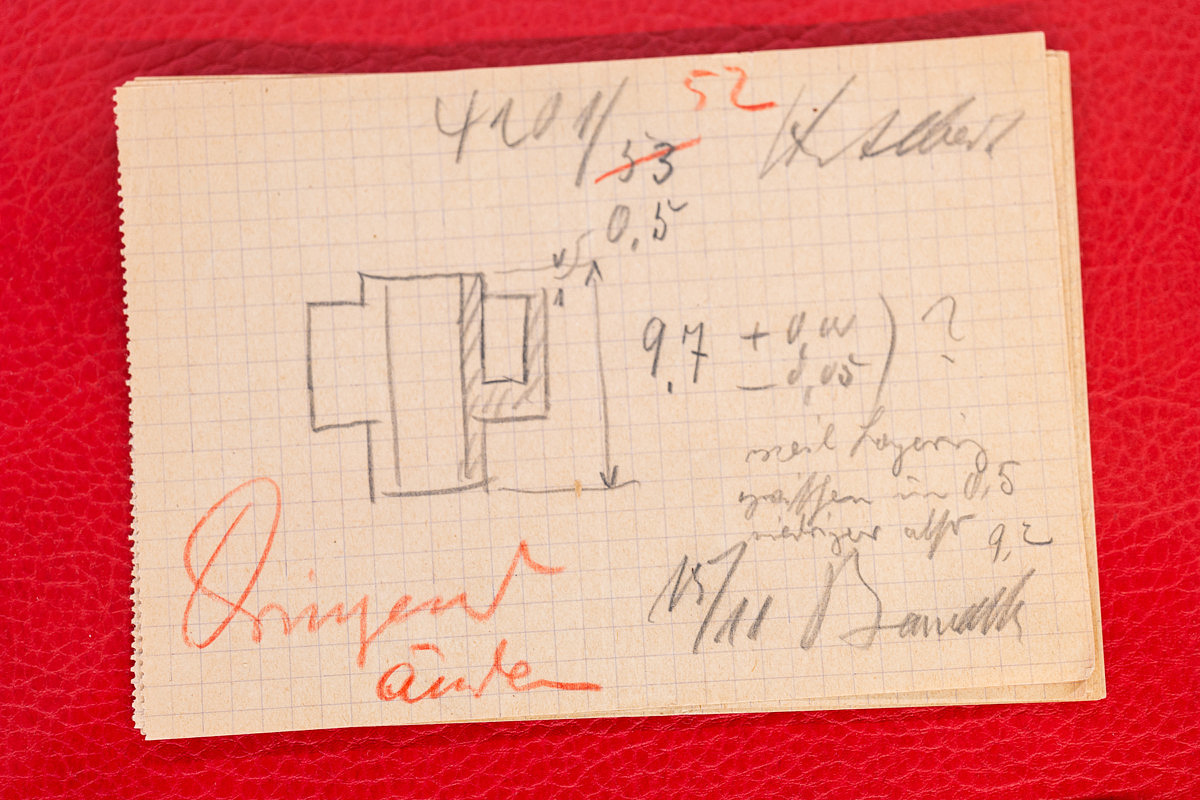
Notes by Oskar Barnack
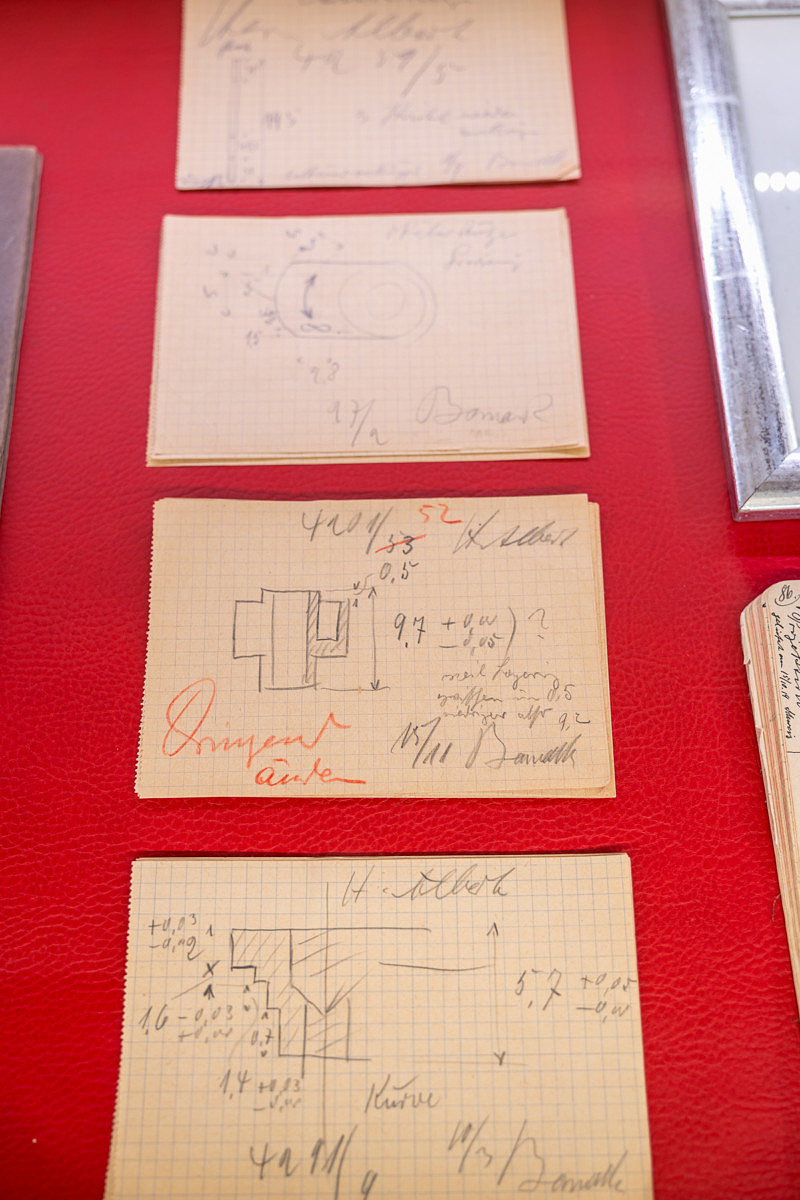
Oskar Barnack design sketches

More Oskar Barnack design sketches
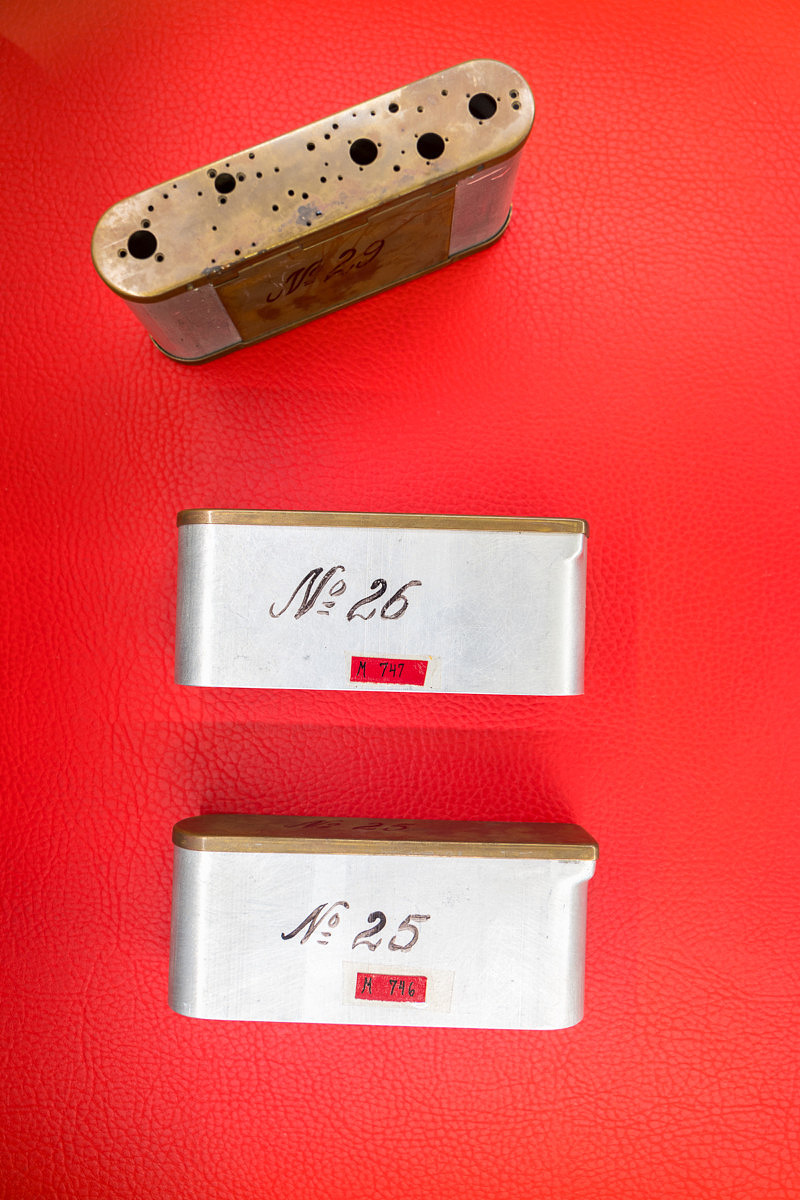
Old school prototyping
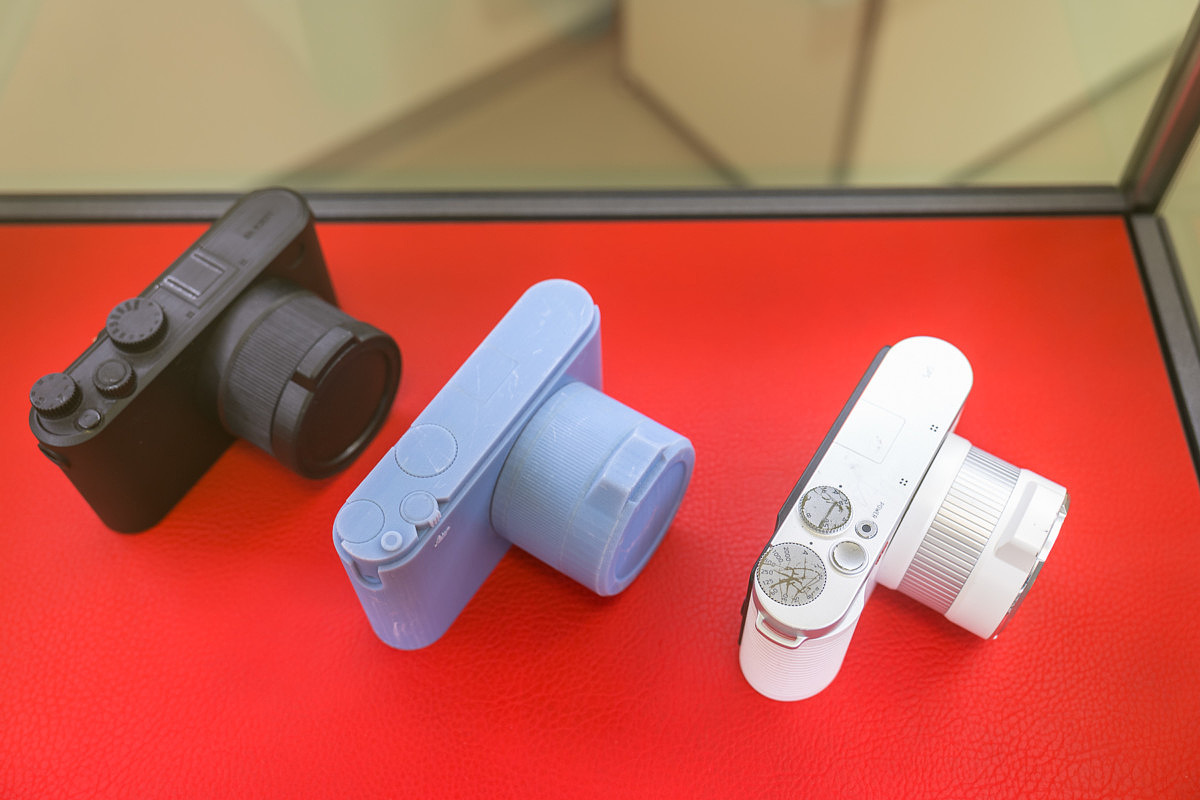
New school 3D printed prototyping, here for the X-U
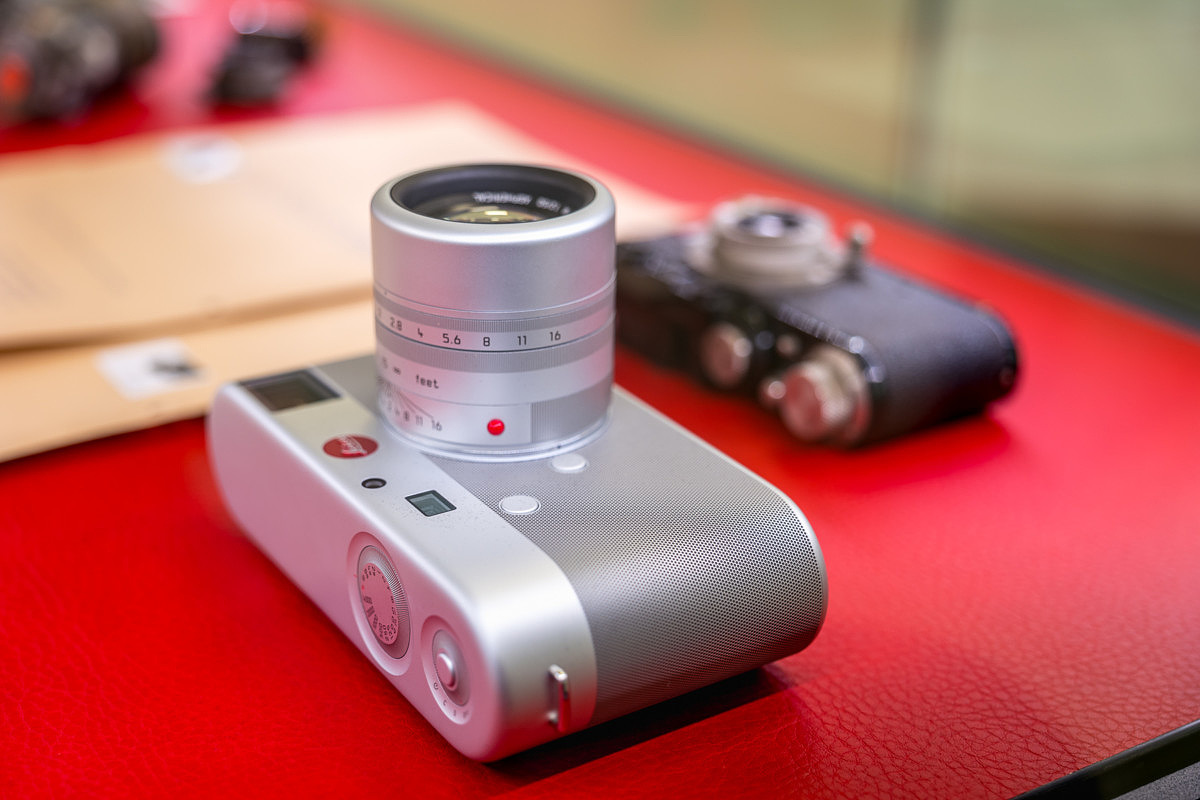
Jony Ive (Apple’s head of design) designed M for (RED) camera
The Camera Vault
For the third and final stop on the tour, our guide led us through another set of double doors and into the crown jewel of the Archive – the camera vault. This large room, about the same size as the records room, had row after row of metal shelving, with almost every spot occupied by storage bins, each labeled with a product name or two. Our guide removed one of the bins and opened it. Inside was about a dozen cameras of that type.
Sadly, no pictures were allowed in there, so you’ll just have to imagine what a Leica collection with thousands of cameras and lenses looks like.
The Future
Leica plans to make the archive available to the public in the future. In the meantime, a team of full-time archivists keep the growing collection preserved for future generations. Leica created the first 35mm still camera over 100 years ago. In that time, the company has had an enormous impact on photography. Clearly, the company understands the importance of maintaining and curating this history.






























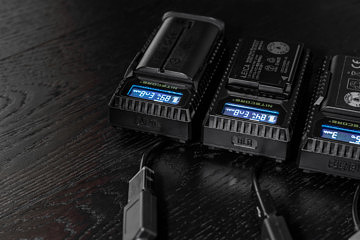
0 nhận xét:
Đăng nhận xét